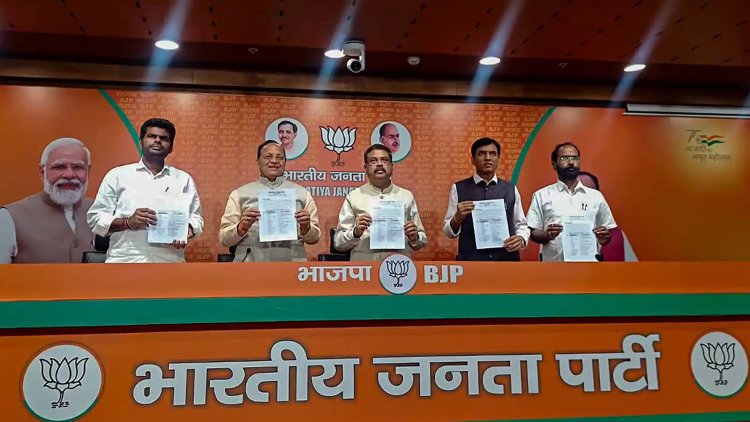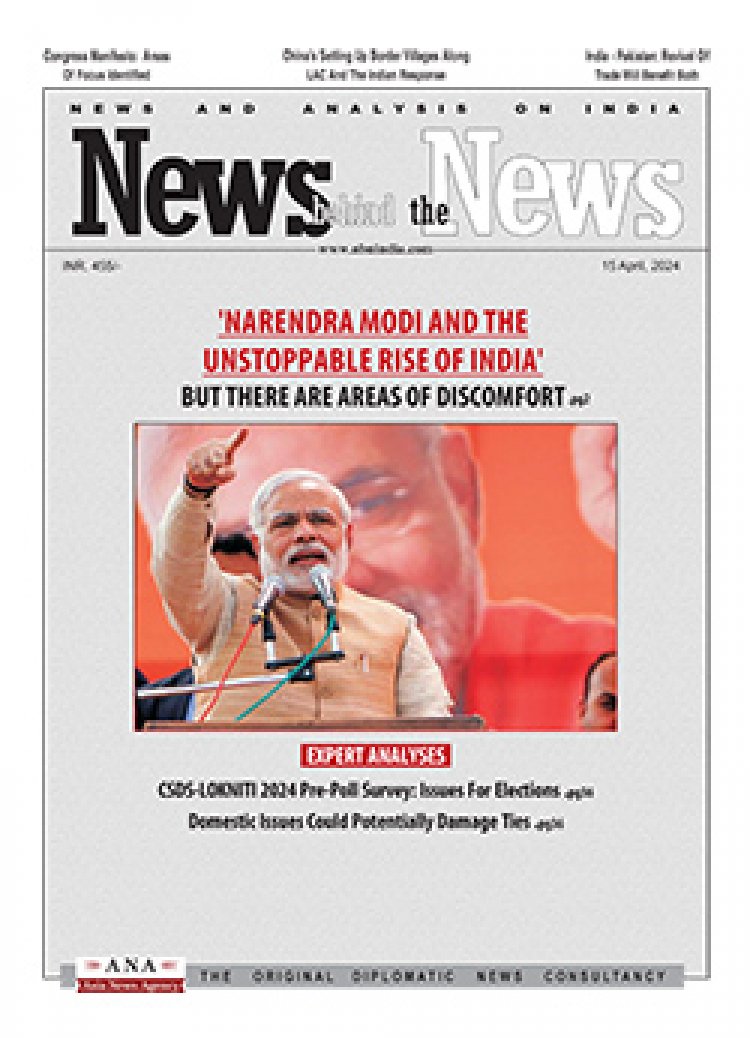Karnataka Assembly Elections: BJP’s Social Calculus
Asia News Agency

There was bad news for the ruling BJO in Karnataka, a Southern state that will elect its assembly on 10 May.
The Supreme Court Thursday told the Karnataka government that a reading of its order scrapping the 4 per cent quota for Muslims in the state ‘appears to suggest that prima facie…the foundation of its decision-making process is highly shaky and flawed’.
This was underlined by Justice K M Joseph heading a two-judge bench hearing a writ petition challenging the Government Order (GO) by L Ghulam Rasool and Anjuman-E-Islam. The state has asserted that the Constitution does not permit reservation on the basis of religion.
Justice B V Nagarathna, the other judge on the bench, said the state could have waited for the final report instead of issuing the GO on the basis of an interim report and sought to know the 'great urgency.'
The petitioner argued that the state changed the status quo ‘overnight’ without any enquiry or empirical data or report. The state said that reservation based on religion was unconstitutional and asked for a few days to reply so the SC declined to give interim relief.
The 4 percent reservation, they said had, instead, been given to Vokkaliga and Lingayat communities because ‘they don’t want to displease others', he said adding ‘we (Muslims) are dispensable’.
However, with the state as well as counsel appearing for some leaders of dominant Vokkaliga and Lingayat communities opposing any stay and seeking a few days to reply, the bench declined to grant any interim relief sought by the petitioners and fixed the matter for hearing on April 18.
Dominant caste and communal factors
This indicates the dominant factor played by the caste and communal factors in not only Karnataka but in most of the country. In fact, one of the reasons attributed to the BJP’s ascension in states like UP and Bihar in recent years has been its success in isolating the Muslim-Yadav (M-Y) combination – which used to deliver victories for the likes of the Mulayam Singh-led SP and the Lalu Yadav-led RJD – by creating its social base comprising forward castes, non-Yadav OBCs and Dalits.
Breaking the the Congress’s Kuruba (OBC)-Muslim base
In Karnataka, writes political analyst by Johnson T A “the ruling BJP has been trying to reenact its UP-Bihar play, looking to break away the Congress’s Kuruba (OBC)-Muslim base from the party’s minorities, OBCs, and Dalits (AHINDA) social coalition.
The Kuruba-Muslim base, incidentally, has been a key component in the Congress’ social arithmetic that could play a role in a majority of the seats in the May 10 state Assembly polls.
This strategy of the BJP is increasingly becoming evident as the party is gunning for the Kuruba stalwart and Congress Legislature Party leader Siddaramaiah besides targeting the Muslims community through moves like scrapping of its 4% backward class reservation.
The BJP’s attempts, argues Johnson “are aimed at dismantling the Congress’s AHINDA support structure and devising a winning formula with OBCs, Dalits, and dominant castes like Lingayats (17 per cent of the state’s population) and Vokkaligas (15 per cent of the population) on the plank of Hindutva and development.
“The BJP has worked out this new strategy on account of its failure to win a clear majority in the state till now on the basis of a caste strategy centred on Lingayats – with ex-chief minister and Lingayat stalwart B S Yediyurappa as its face – and coalition of other communities inclined towards the BJP through Hindutva, including sections of Dalits and tribals.”
OBC Kurubas (who constitute about seven of the 33 per cent OBC population) and Muslims (who make up around 12 per cent population) are the communities that are spread across most of the state’s total 224 constituencies unlike Lingayats, who are largely based in about 80 Assembly constituencies in north Karnataka, and Vokkaligas, who mainly inhabit 75 constituencies in southern part of the state.
















